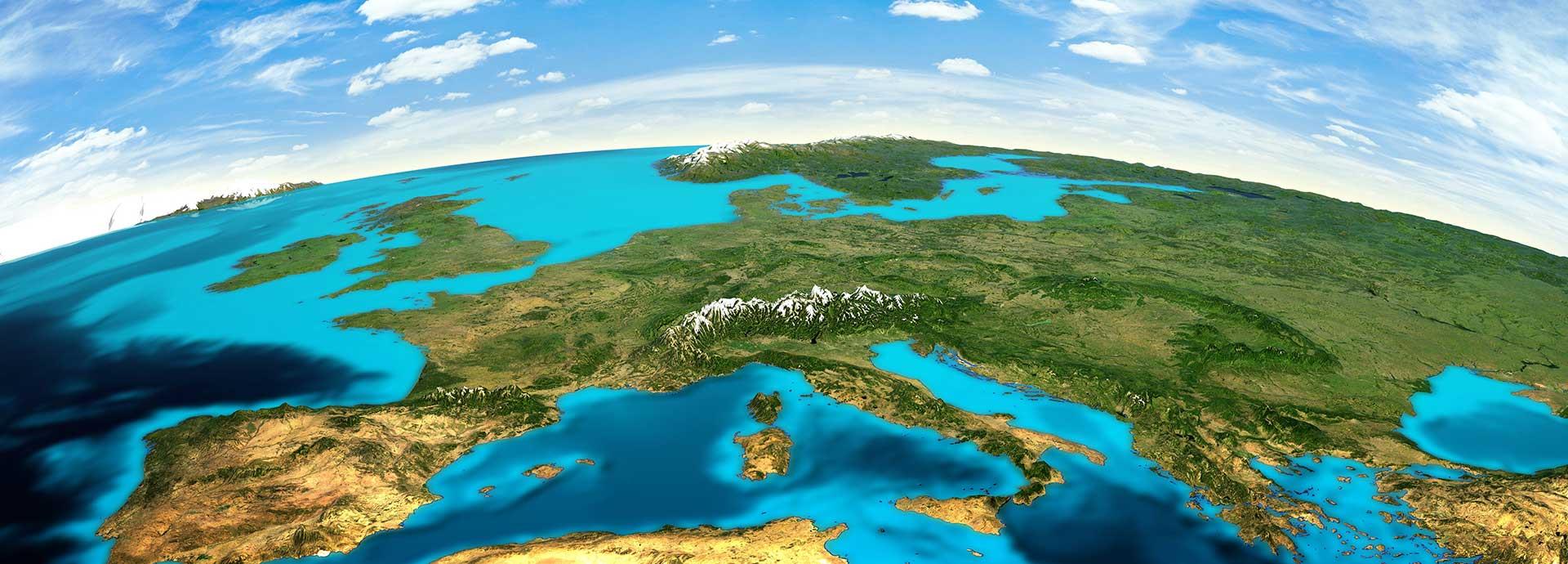

Last November, the European Commission introduced a plan to make Europe the first climate-neutral continent. The plan requires a broad transformation of the whole EU economy: from agriculture and transport to industrial production and private energy use. As the economy struggles to adapt to a post-coronavirus reality, what will happen to the proposals?
The European Green Deal (EGD) faced challenges on the path from proposal to policy even before the Covid-19 pandemic took center stage. Some experts consider its goals not sufficient to stop climate change, while others don’t believe that Europe’s economy is ready to sacrifice growth for sustainability. These debates were still continuing when economic activity across the continent came to a halt as countries sought to stop the virus’ spread.
As cases slow and countries begin to restart their economies, what happens to the Green Deal?
Europe’s moonshot
At the end of last year, after worldwide protests led by young people reframed debates over global warming into demands to confront a ‘climate emergency’, the European Commission introduced its Green Deal plan. Ursula von der Leyen, who became president of the commission on 1 December, made the new sustainable development plans her main agenda almost immediately after assuming office. In a statement announcing the initiative, von der Leyen called it “Europe’s man on the moon moment.”
Indeed, the European Green Deal has ambitious goals – to cut the EU’s greenhouse gas emissions by 50-55% by 2030 and to make the whole continent emission-free by 2050. The deal contains a total of 50 policy measures, including a legally binding target of reducing EU emissions to net-zero by 2050 and a carbon border tax to prevent companies from relocating outside the EU to avoid climate legislation.
“With the EGD, the European Commission (EC) has underlined that it wants to make stopping the climate crisis the most important task of its tenure,” says Oldag Caspar, Team Leader for European climate politics at the think tank Germanwatch. “Of course, overcoming the effects of the coronavirus pandemic is most important now, but even when the pandemic is over, both the climate crisis and the urgent need for this European Green Deal stays.”
Making a business case
Caspar says that one of the most important aspects of the EGD is its focus on how economies and businesses must future-proof current investment.
The EGD “underlines that future growth is with business models that build upon resource and energy efficiency, as well as, circular economy solutions,” Caspar says.
As the continent considers how best to jump-start economies in the wake of the coronavirus, he says that keeping sustainability in mind is key.
Ville Rimali, Director of Growth and Development at Wärtsilä, says that flexibility must be part of the discussion as well, particularly at a time when businesses face pressure to cut costs.
“It’s really important that legislation does not block any possible path or favour any particular technology or solution to reach the 2050 target. Instead, those choices should be made on a techno-economical basis,” says Rimali, describing the targets as a path to the future. “Some solutions that would not be acceptable in 2050 might still be needed to keep costs reasonable during the transition. For example, a flexible and highly efficient combined heat and power plant running on gas can be really sustainable and economical today, and the same asset can also be operated with biofuels or synthetic green fuels in the climate neutral society of 2050.”
Financing the deal
As governments allocate money into keeping their economies afloat in the wake of the Covid-19 crisis, incentives for EGD proposals may take a back seat.
Even before the crisis, some critics of the plan, like Piotr Arak, Director of the Polish Economic Institute, said the EUR 1 trillion promised for sustainable investments in the EGD was far too low and failed to take into account the different economic situations of EU member states.
“We still do not know if the proposal of the Just Transition Fund with additional financing is enough to sustain the needed investments in the energy sector,” Arak says. “After the pandemic, this program will need to change. Hopefully the EC will be more open to use this scheme as a development plan and not just as climate mitigation, also the EU-wide recession will make EGD very difficult to achieve and comply with.”
Caspar says that as governments craft stimulus plans to help countries recover after the coronavirus, they must keep the EGD goals at the forefront since tying economic competitiveness to sustainable policies and practices will be key to Europe’s economic recovery and future growth. Many EU governments agree – climate and environment ministers from 17 EU countries have signed a letter asking EGD principles to be at the heart of the European Commission’s comprehensive post-coronavirus recovery plan.
“The way governments will set up the programmes to overcome the economic crisis following the pandemic will be important. These programmes will have a major long-term impact on our economies. Every stimulus programme that does not focus on supporting the Green Deal, makes reaching the climate targets more expensive and difficult,” Caspar says.

